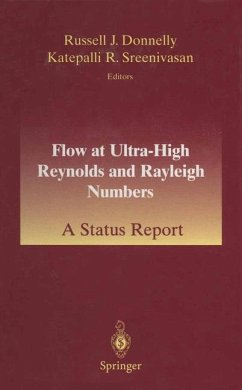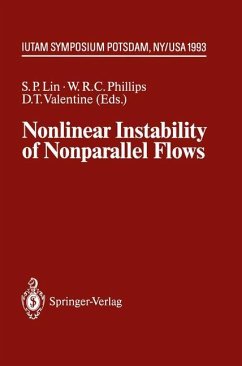
Convection in Liquids

PAYBACK Punkte
39 °P sammeln!
Both of the authors of this book are disciples and collaborators of the Brussels school of thermodynamics. Their particular domain of competence is the application of numerical methods to the many highly nonlinear problems which have arisen in the context of recent developments in the thermodynamics of irreversi ble processes: stability of states far from equilibrium, search for marginal critical states, bifwrcation phenomena, multiple stationnary states, dissipative structures, etc. These problems cannot in general be handled using only the clas sical and mathematically rigorous methods of th...
Both of the authors of this book are disciples and collaborators of the Brussels school of thermodynamics. Their particular domain of competence is the application of numerical methods to the many highly nonlinear problems which have arisen in the context of recent developments in the thermodynamics of irreversi ble processes: stability of states far from equilibrium, search for marginal critical states, bifwrcation phenomena, multiple stationnary states, dissipative structures, etc. These problems cannot in general be handled using only the clas sical and mathematically rigorous methods of the theory of differential, partial differential, and int~grodifferential equations. The present authors demonstrate how approximate methods, re lyi ng usually on powerful computers, lead to significant progress in these areas, if one is prepa red to accept a certain lack of rigor, such as, for example, the lack of proof for the convergence of the series used in the context of problems which are not self adjoint, nor even linear. The results thus obtained must consequently be submit ted to an exacting confrontation with experimental observations. - Even though, the '1 imited information obtained concerning the, often unsuspec ted, mechanisms underlying the observed phenomena is both precious and frequently sufficient. This information results from the properties of the trial functions best suited to the constraints of the problem such as the initial, boundary, and "feedback" conditions, and the analysis of their behavior in the course of the evolution of the system.














